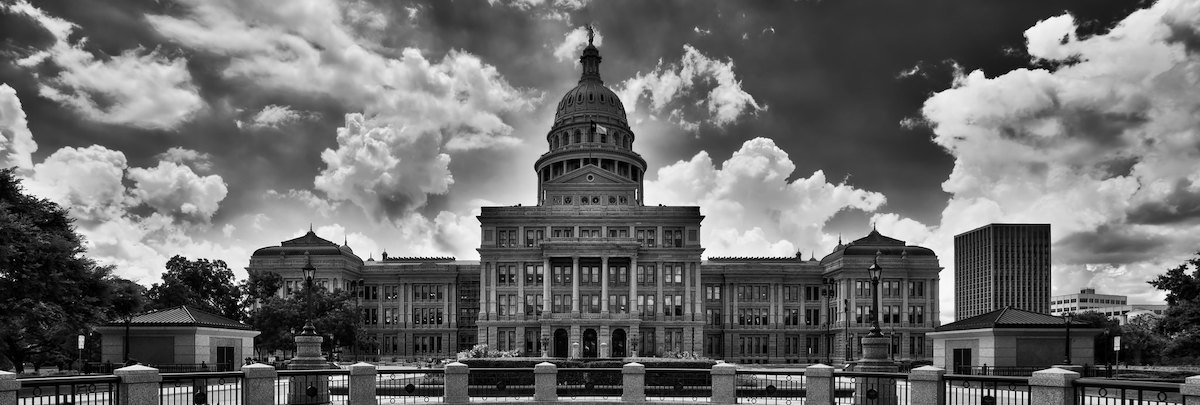In January, amendments made under Texas Senate Bill 943 and other legislation will go into effect, strengthening the Texas Public Information Act (PIA) and addressing court-created obstacles to accessing contractor information within the state.
But how does this help you, the individual FOIAnaut?
Over the last four years, court cases like Boeing and Greater Houston Partnership have weakened public access to records involving private entities. While the state law already had a few features favorable to requesters–like the unique Texas process of requiring approval from the Attorney General to withhold records, which MuckRock has previously addressed–starting in January, access to this information will be better protected. According to S.B. 943 author State Senator Kirk Watson, that bill in particular renews public access to “critical contracting information like total price, deliverables, and deadlines.”
The Deterioration of the PIA
The state’s reaction to the Sharpstown stock-fraud scandal of the early 1970s strongly influenced the birth of the Texas Public Information Act.
In 1973, the Texas legislature passed the “Texas Open Records Act,” later known as the PIA. The original intent of the law was to ensure that “all persons are entitled to full and complete information regarding the affairs of state government and the official acts of those who represent the people of Texas as public officials and employees.”
Over time, as is the way of laws, the PIA was strengthened and weakened by various amendments and court cases. For instance, the Attorney General rule was added in 1993 and has been amended several times since then. But to best understand the relevance of recent amendments, let’s consider the court cases that have weakened the PIA over the last decade.
In *Nehls v. Hartma*n (2018), for instance, the Texas Supreme Court raised the bar for “substantially prevailing” in a public records lawsuit, a standard used in the PIA to award attorney’s fees to requesters who win their court cases. This made is costlier to file public records lawsuits.
Another important anti-transparency case was Greater Houston Partnership v. Paxton (2015), in which the Greater Houston Partnership (GHP), an economic development nonprofit, sued Texas AG Ken Paxton to prevent the release of its check register to a citizen of Houston. The court held that GHP did not have to release the records because it was not “sustained” by public funds but merely “supported” by them (public funding made up less than 8% of GHP’s revenue). This case has been applied many times since then to help publicly-funded nonprofits hide their financial activity from the PIA.
The most infamous of these cases, however, was *Boeing v. Paxto*n. In 2015, The Boeing Company and others sued the AG over the release of records pertaining to contracts between Boeing and the Port Authority of San Antonio. The court ruled in Boeing’s favor.
The precedent this set expanded the application of the “competitive advantage” exception beyond the bidding process itself. The majority opinion stated that “although the Attorney General urges that 552.104 only applies to ‘ongoing competitive bidding,’ nothing in the exception’s text says as much.”
Boeing also expanded the range of “advantage” a contractor could use to justify an exception: “Moreover, the test under section 522.104 is whether knowing another bidder’s overhead costs would be an advantage, not whether it would be a decisive advantage.”
Since 2015, the Boeing decision has been cited in decisions to withhold records over 1,850 times. One particularly infamous case was when the city of McAllen refused to disclose how much it had paid singer Enrique Iglesias to perform at an annual holiday concert. You can read about other examples here.
The Fight to Repair the PIA
Texans didn’t take all of this lying down. Citizen groups and lawmakers fought for years to repair the damage done to the PIA. Before the 2017 legislative session, “governmental entities, the Attorney General’s Office and requestor and media groups” built a platform of bills to increase transparency in Texas. Some passed, but many did not.
Texas state senators tried to pass bills that aimed to “fix” the damage from the Boeing and Greater Houston Partnership cases, but this effort was killed in the Texas House of Representatives. Conversely, Rep. Terry Canales’ House Bill 349, which offered a limited fix to Boeing, was killed in the Texas Senate. Kelley Shannon, director of the Freedom of Information Foundation of Texas, blamed “opposition from big business and others” for the defeat of the 2017 legislation.
In 2019, lawmakers were ready—and much more successful. In February, Sen. Kirk Watson and Rep. Giovanni Capriglione filed identical bills in the House (H.B. 2189) and Senate (S.B. 943). The bills focused on contracting transparency, an issue from both Boeing and Greater Houston Partnership. According to the FOI Foundation of Texas, the bills represented “months of work by the diverse Texas Sunshine Coalition” and “the competitive concerns of businesses and non-profits that contract with the government.”
S.B. 943 was eventually signed into law by Texas Governor George Abbott, marking a significant victory for transparency in Texas. Other victories included Rep. Canales’ H.B. 81, which protected access to records involving government-funded “parades, concerts, or other entertainment events,” and S.B. 988, which addressed the issue from Nehls v Hartman.
The New Amendments
S.B. 943 amends the PIA, adding definitions, rearranging exceptions, and introducing new policies. All of these changes will take effect on January 1, 2020, just over a month from now.
Here are the main takeaways you need to know:
The bill expands the definition of “governmental body” to include, among other things, economic development organizations like the Greater Houston Partnership. It also adds a more specific definition of “trade secrets” and clarifies that “contracting information is public and must be released unless excepted from disclosure.”
To address Boeing, S.B. 943 limits the scope of the “competitive advantage” exception to “governmental bodies,” while specifying the competitive situations under which an exception would be appropriate.
For Texas businesses, the bill creates a new exception for “confidential proprietary information” like individual business practices. This includes a requirement that vendors and contractors base their claims on “specific factual evidence.” It also specifies that the exception does not include payments and communications to and from governmental bodies.
S.B. 943’s largest addition, however, is Subchapter J. This subchapter applies to “non-governmental bodies” that sign contracts with governments which result in the government spending over $1 million. It outlines a new process in which a government can request information from these non-governmental bodies when it receives PIA requests for that information.
Subchapter J also requires future contracts like those described above to require the non-governmental entity to keep records about the contract. Upon completion of a contract, the non-governmental body must either freely provide the government with these records or maintain them themselves.
To enforce its rules, Subchapter J says that governments must inform a contracting entity if it is breaking the rules and that governments may end contracts if the issue isn’t resolved. Furthermore, governments are forbidden from entering into contracts with entities that have broken these rules.
The legislative attention to fixing ways courts chipped away at PIA may provide a useful lead for federal legislators, who have not addressed similar damages to FOIA and corporate accountability created by the Supreme Court decision Food Marketing Institute vs. Argus Leader Media.
Have a public records story or problem and want some help learning more? Let us know via the form below.
Image via flickr




